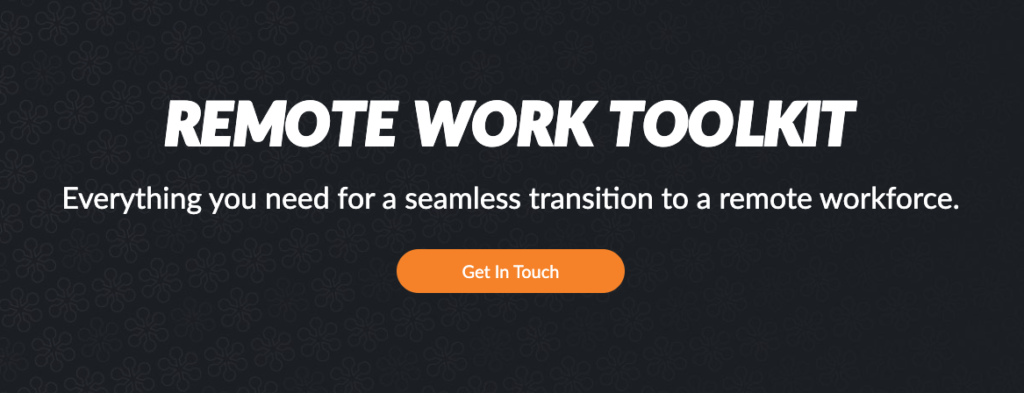Work is becoming more flexible by the minute – be it long-term and part-time, or full-time but temporarily in the name of safety. As employees shift to more flexible hours, many companies are also evolving their perspective on Paid Time Off (PTO) or vacation time policies. Over the past few years we are seeing more and more companies — technology companies in particular — offering “unlimited vacation” as an employee benefit. This gesture, though widely debated, is one that shows the evolution of the company-employee relationship and how it has not only changed over the past 30 years, but has evolved. At the heart of that evolution is trust.
Companies today are putting more trust than ever in their employees to manage their time. Instead of measuring productivity in hours spent doing their job, more emphasis is being put on outcomes and results. As long as you get your work done, it doesn’t always have to fit in the 9-to-5 window. Sounds nice, right? Not always. When your work is only a few feet away from you at home, a blurry line between “on” working hours and “off” personal time tends to develop. As this evolution takes place, how do we encourage employees to manage the boundaries between “on” and “off” work time, while still being productive?
Thousands of organizations around the globe were recently hyper-accelerated into a flexible, remote work environment to keep employees safe during the COVID-19 pandemic. Here are some things for leaders to consider in order to succeed in this environment.
Enable Employees to Be Productive On Their Own Time
Letting your employees know that you trust them to accomplish tasks on their own time can go a long way in boosting employee morale. The trick is to set your employees up with good communication habits. After all, trusting in your employees doesn’t mean giving them the silent treatment until a project is completed. After all, many employees may not know what work to prioritize, feel overwhelmed with too many to-do items, or procrastinate without a clear project timeline.
Reach out regularly to see if they have questions about projects, and be sure to send out a clear project timeline as projects are passed to employees so they can better manage their own time. Your employees will appreciate you opening the channels of communication so they feel comfortable asking questions as they arise. Just be aware of the difference between encouraging and commanding, as one denotes trust and the other can be discouraging.
Focus on the Results
A results-oriented work environment sounds great, right? After all, schedules can change on a daily basis and one day we might be done with work at 4pm while the next day we’re working round the clock. However, this type of change is often a significant culture shift and can be a difficult transition for your employees. To mitigate this, here’s a quick hit-list. Make sure all your employees:
- Understand the company mission and goals
- Have the proper communication, collaboration and project management tools
- Are transparent with their projects and timelines
- Feel empowered to share ad-hoc wins, learnings and successes
“Vacation” Is Not a Dirty Word
This concept of giving employees unlimited vacation time is met with both enthusiasts and nay-sayers. While we’re not going to debate that here today, what is most interesting is how this type of policy represents in how the employer-employee relationship is evolving. The construct of the 9-to-5 working hours is a carry over from shift work – when the vast majority of workers inserted their time card into a machine that stamped the time they arrived and left. While this is still the case in pockets across our workforce, when, where and how work gets done has drastically changed. Unlimited vacation policies and flexible PTO without approval queues and red tape rely on this same relationship of transparency and trust between employer and employee.
It’s important for employees to take full advantage of the downtime and vacation time offered in order to re-charge, and set a good example for their team members. As a leader, be sure to encourage employees to do what is best for them and look for signs of burnout that one of your employees may need a break.
Empathy, Empathy, Empathy
This situation we’re in is unprecedented. The ability to work from home has enabled everyone to keep being “productive” even in a time of global crisis. Even the most top-performing, passionate workers have a lot on their mind right now, including the health and safety of their families and their financial futures. It’s critical for employers to be trusting, understanding and empathetic, now more than ever. Offer outlets for your team to remain human and let off some steam – like coffee talks, happy hours, virtual team games. The world been thrust into this new lifestyle recently, and everyone is adjusting.
Keep Your Employees Safe, Prepared and Happy
For more information on managing a remote workforce, including navigating the shift and driving productivity, check out our remote work resource center by clicking on the image below.

